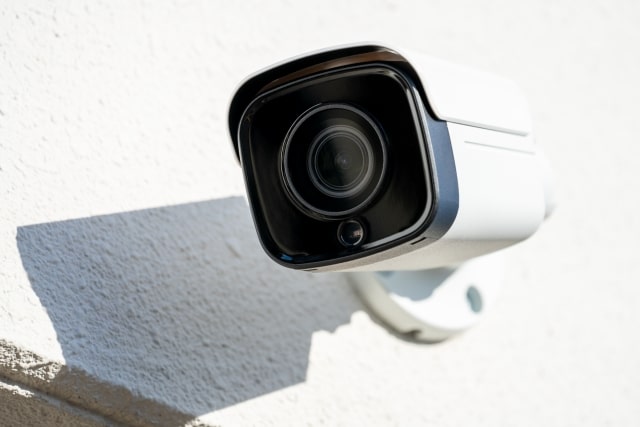Recently, the news that the South Korean military removed Chinese-made surveillance cameras has gained attention. According to reports, these cameras were found to potentially leak information to China, prompting the military to take action. This incident serves as a reminder of the growing risks of information leakage in today’s world and raises important questions about the safety of Chinese-made products. In this article, we will look back at past cases of data leakage involving Chinese products, explore the risks associated with surveillance cameras and other electronic devices, and discuss effective countermeasures.
Background of the South Korean Military’s Removal of Chinese-Made Cameras
In 2024, the South Korean military decided to remove all Chinese-made surveillance cameras installed at facilities related to national defense. The decision was based on concerns that these cameras might have hidden backdoors that could transmit military secrets to China.
This decision is part of broader efforts to strengthen security at national defense facilities and other critical infrastructures. It underscores the importance of vigilance in protecting sensitive information. However, the issue isn’t limited to military installations; the risks associated with Chinese-made electronics and surveillance cameras extend to civilians and companies as well.
Past Cases of Information Leakage Involving Chinese Products
The issue of information leakage from Chinese products has been raised several times in the past. Here are some notable examples.
1. Hikvision and Dahua Surveillance Camera Concerns
Chinese surveillance camera manufacturers Hikvision and Dahua hold a large market share globally. However, these cameras were found to contain backdoors that allow remote control and data transmission to external parties. Due to this, the U.S. and European governments have banned the use of these cameras in sensitive facilities. In the U.S., there was a widespread effort to remove these cameras from sites related to national security.
2. Chinese Smartphones and Personal Data Leakage
Chinese smartphone giants like Xiaomi and Huawei have also faced scrutiny over concerns about data leakage. In 2019, it was revealed that Xiaomi smartphones were transmitting users’ personal data to servers in China without their knowledge, sparking debates about privacy violations.
3. Other Electronic Devices
Chinese-made Wi-Fi routers and networking devices have also been flagged for similar concerns, especially within corporate and government settings. Some of these devices were found to have firmware with hidden backdoors that could be used to transmit sensitive data to external servers.
How Chinese Products Cause Information Leakage
Let’s explore how Chinese products can leak information and the technical mechanisms behind it.
1. Presence of Backdoors
A backdoor is a hidden pathway in the software or firmware of a device that allows manufacturers or attackers to access the device remotely. Many Chinese products have been found to contain such backdoors, which can be used to gather data or control the device without the user’s knowledge.
2. Data Transmission to Servers in China
It’s common for Chinese-made devices to send users’ data to servers located in China. For instance, surveillance cameras or smartphones may automatically transmit footage or personal data to servers in China without the user’s consent. Once data is sent to these servers, the potential for misuse becomes a serious concern.
Responses and Countermeasures Taken by Various Countries
Concerns over Chinese products have led many countries to take preventive measures.
U.S. Response
In 2019, the U.S. federal government banned the use of Hikvision and Dahua surveillance cameras in government facilities. Similarly, a law was passed restricting the participation of Chinese telecommunications companies like Huawei and ZTE in building the U.S. 5G network. These measures were implemented due to the risks these companies posed to national security.
Developments in Europe
In countries like the UK and Germany, the use of Chinese surveillance cameras is also restricted. The use of these cameras is particularly banned in government facilities and public infrastructure, indicating a rising awareness of security issues.
Situation in Japan
In Japan, concerns over Chinese surveillance cameras and telecommunication equipment are also growing. Government agencies have begun to limit the use of Chinese products due to national security concerns, and more companies are becoming aware of the need for risk management.
Safer Alternatives for Avoiding Chinese Products
What products should you choose if you want to avoid the risks associated with Chinese-made products? Here are some safer alternatives.
Japanese and Western-Made Surveillance Cameras
Japanese-made cameras from companies like Panasonic and SONY, or Western-made cameras from Bosch and Axis, are considered more reliable from a security standpoint. These companies adhere to international standards for privacy and data protection, making them a safer choice compared to Chinese products.
Key Points for Choosing Secure Products
When selecting products with security in mind, consider the following points:
- Regular Firmware Updates: Ensure that the manufacturer regularly updates the device’s firmware.
- Encryption Technology: Check if the product employs proper encryption techniques.
- Reliable Data Storage Locations: Ensure that the data is stored on servers in trustworthy countries.
Conclusion: Risks of Chinese Products and Safer Choices
The recent news of the South Korean military removing Chinese-made surveillance cameras highlighted the ever-present risk of information leakage in today’s world. While Chinese products may seem attractive due to their lower costs, the security risks they pose cannot be ignored.
Particularly for companies and government agencies handling sensitive information, careful consideration must be given before introducing Chinese-made products. In an era where privacy and data protection are of utmost importance, making informed and secure product choices is essential for protecting both individual and societal security.









Comments